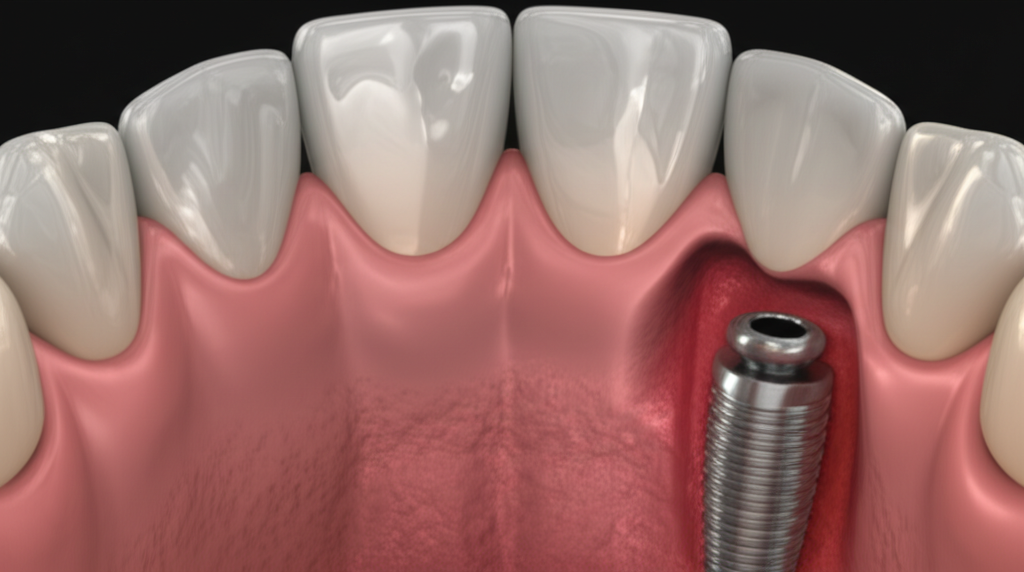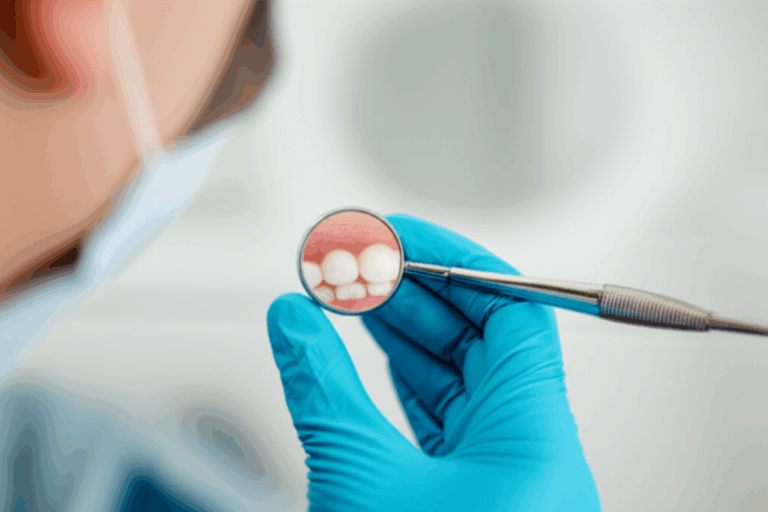
What Can Go Wrong With Dental Implants? Understanding Potential Risks and Complications
Table of Contents
- Introduction: Dental Implants – High Success, But Not Without Risks
- Early Dental Implant Complications (Immediately Post-Surgery to First Few Months)
- Infection at the Implant Site
- Nerve Damage
- Sinus Perforation (Upper Jaw Implants)
- Insufficient Osseointegration (Implant Failure to Fuse)
- Allergic Reaction (Rare)
- Surgical Complications (General)
- Late/Long-Term Dental Implant Complications (Months to Years After Placement)
- Peri-implantitis
- Mechanical Issues
- Bone Loss Around the Implant (Non-Infectious)
- Aesthetic Problems
- Factors That Increase the Risk of Dental Implant Problems
- Lifestyle Factors
- Medical Conditions
- Anatomical/Oral Factors
- Surgical and Operator Factors
- Recognizing the Signs: When to Call Your Dentist
- Prevention and Maintenance: Minimizing Your Risk
- What Happens If a Dental Implant Fails?
- Conclusion: Informed Decisions Lead to Successful Outcomes
Introduction: Dental Implants – High Success, But Not Without Risks
When I first thought about getting a dental implant, I’ll be honest—I was pretty nervous. I heard implants last a long time and usually work well. My dentist told me almost everyone’s implants work great for many years, with success rates around 95 to 98 percent over ten years. That sounded comforting. Still, I wanted to be real with myself. What if I ended up being that one person where things went wrong? What could actually happen with dental implants?
I did a lot of reading before I decided. I wasn’t looking for scary stories, but I did want to know the risks, what signs to watch for, and—most important—what I could do to keep problems away. Over time, I have seen both easy recoveries and some bumps in the road (for me and friends). So, let me show you what I learned, and what I wish I’d known sooner.
Early Dental Implant Complications (Immediately Post-Surgery to First Few Months)
The days after surgery felt like I had to be careful with everything. Most of the time things go fine, but those first few weeks are important.
Infection at the Implant Site
Let’s talk about infection, since that’s the one that worried me the most. Like any surgery, dental implants can get infected—especially if germs get into the spot during or after the procedure.
How can you tell if an infection is starting? My dentist said to watch out for pain that won’t stop, redness that sticks around, swelling, any pus, or a fever. If you notice a bad taste that just won’t leave, that can also mean bacteria are causing trouble.
For me, brushing well and following the instructions really helped. A friend of mine spaced out a bit on care—he got swelling and pain. His dentist gave him antibiotics and caught it early, so the implant was okay. Sometimes, though, infection can mean the implant has to be taken out if you can’t beat it.
Nerve Damage
Implants have to go deep into your jaw, and there are some important nerves in there. My dentist showed me a drawing—right below the back teeth, there’s a big nerve in the lower jaw. If the implant gets too close, it could hit or hurt the nerve.
I was told I might get some tingling for a few days (I had a numb lip for about two days), but if you get numbness, pain, or tingling in your gums, lips, chin, or tongue—and it just won’t go away—you should get it checked. Most of the time, nerves heal. But in some rare cases, it can last longer.
Sinus Perforation (Upper Jaw Implants)
If you’re getting an implant in your upper jaw, listen up. The roots of the back top teeth are really close to the sinus cavity, so if the implant is put in a little too far, it could poke into your sinus.
This didn’t happen to me, but a coworker had some nose stuffiness and noticed blood when she blew her nose after her dental implant. Her doctor found out the implant just touched her sinus. Usually, they fix this by moving the implant or doing a sinus lift.
Insufficient Osseointegration (Implant Failure to Fuse)
I kept seeing the word “osseointegration” during my research. Basically, the implant needs to become part of your jawbone. If it doesn’t—because your bone isn’t good, an infection happens, or you put too much stress on it—it won’t be stable.
My dentist always checked if the implant was loose at my follow-ups. If it wiggles, that’s a big warning sign. Luckily for me, mine never moved. If your implant does move early on, it probably never fused right. Lots of times you can try again after your mouth heals.
Allergic Reaction (Rare)
This is not common, but possible. Most implants are made of titanium, which usually doesn’t bother anyone, but a few people have allergies to metals. My dentist actually asked if I had any metal allergies and even did a quick test.
Sometimes the symptoms aren’t very obvious, but swelling that won’t go away, skin rashes near the spot, or pain that is always there after healing are signs to watch. In rare times, people switch to zirconia implants just to be safe.
Surgical Complications (General)
Just like any other surgery, sometimes you get bleeding, swelling, or bruising. My jaw was a little puffy for two days and I got some bruises, but regular pain meds fixed it. But if you keep bleeding a lot or the pain is way too strong, call your dentist right away.
Late/Long-Term Dental Implant Complications (Months to Years After Placement)
Most implant problems happen in the first year, but stuff can come up way later, too.
Peri-implantitis
Peri-implantitis is kind of like gum disease, but it happens around the implant. I know people who got this because they started skipping their brushing or missed cleanings. Smoking, diabetes, or biting wrong bites can also cause this.
The first signs aren’t always easy to spot—your gums might get red or swell up and sometimes bleed when you brush. Later on, you might see pus, deep spaces between your gums and the implant, and even bone loss. The worst part? You might not feel much pain until it’s bad.
Treatment means deep cleaning, antibiotics, and sometimes small surgery or bone grafts. If you can’t stop the infection, the dentist might need to remove the implant.
Mechanical Issues
Implant Screw Loosening/Fracture
Even though these are metal, stuff happens. Years of chewing, or biting down on something hard, can loosen the screw that holds the crown or the part underneath, or even break the implant in rare cases.
Usually, you’ll hear clicking, the crown or implant will feel loose, or it moves when you chew. I once felt a weird “give” while biting and asked my dentist to check—it just needed a little tightening.
Crown/Prosthesis Complications
Most of the time, the fake tooth (the crown) on top gets the damage. Chips, cracks, or it coming loose can happen, especially if you grind your teeth or like to eat tough or sticky foods. If the crown doesn’t fit right, food can get stuck between the crown and your gum, which gets annoying and can make the gums sore.
Most of these problems are easy fixes. The dentist or a lab can make a new crown or fix it without touching the implant.
Bone Loss Around the Implant (Non-Infectious)
Sometimes, the bone under the implant shrinks, even without an infection. If you bite too hard, if the implant was put in at a bad angle, or there wasn’t enough bone in the beginning, the bone can slowly get less. This can make the implant loose after a few years.
Getting regular X-rays can catch this early. The fix can be small or big, depending on what’s wrong.
Aesthetic Problems
Let’s be real—looks matter. Sometimes your gum pulls back (recession), so you can see the metal of the implant. If your gums are thin or a bone graft didn’t work right, you might see the implant through the gum or have a crown that doesn’t look right. I had a bit of gum pull-back after my lower front implant, but a simple gum fix made it look better.
Getting the crown to look real takes skill, so it helps to use a good lab for the best look.
Factors That Increase the Risk of Dental Implant Problems
Anyone can run into problems, but some things make it more likely. From everything I read and saw, here are the main things:
Lifestyle Factors
Smoking: The top problem. Smoking slows down healing, makes infection easier, and makes failure way more likely.
Poor Oral Hygiene: Implants need you to keep your mouth clean. If you skip brushing, don’t floss, or ignore the spot around the implant, you could get gum disease or an infection.
Medical Conditions
Uncontrolled Diabetes: High blood sugar makes it hard to heal and bacteria love it. If you keep diabetes under control, you lower your risk.
Autoimmune Diseases: These can sometimes make your body attack your own tissues, including around your implant.
Osteoporosis: Weak bones (and some meds) can make your jaw too weak to hold the implant.
Radiation Therapy: If you had radiation near your jaws, it can make healing harder.
Immunocompromised Status: If you have health problems or take meds that lower your immune system, you have a bigger chance of getting an infection or not healing right.
Anatomical/Oral Factors
Not Enough Bone: You might need a bone graft first if you don’t have enough bone for the implant.
Gum Disease: If you have gum infections or untreated gum problems, it can make the implant fail.
Bruxism (Teeth Grinding): Grinding or clenching your teeth brings more pressure on the implant, so parts can break or loosen.
Surgical and Operator Factors
Experience Matters: I went with a dentist who had been doing implants for many years, and it made things easier. If the dentist is new, you might get an implant in the wrong spot or angle, or get the wrong size.
Bad Materials: Not all implants or crowns are made the same. Going with a trusted lab helps you get better parts.
Recognizing the Signs: When to Call Your Dentist
If you’re like me, you might wonder if things are “normal” after surgery. Here’s my best advice—don’t gamble. If you have:
- Pain that keeps going or gets worse past what the dentist told you
- Swelling or redness around the implant that won’t go away
- Any pus or weird discharge
- An implant or crown that feels loose or wobbly
- Numbness, tingling, or odd feelings that don’t improve
- A bad taste or smell from your implant area
- Bleeding gums around your implant that won’t stop
…call your dentist. The sooner you get help, the easier it is to fix things.
Prevention and Maintenance: Minimizing Your Risk
There’s no secret cure, but you can do a lot to stop most problems:
- Pick your dentist carefully: Choose someone with experience, good reviews, and modern equipment to spot problems early.
- Thorough checks: My dentist took detailed scans and asked a lot of health questions. It seemed like a lot at first, but it really helped.
- Listen to post-op instructions: I followed every step, like brushing just right, rinsing, not using straws, and taking it easy for a few days.
- Great oral hygiene: I learned to use small brushes and gentle flossing around my implant.
- Regular dental visits: Going every six months caught small gum problems before they got bad.
- Manage health problems: Keeping my blood sugar controlled really helped my healing.
- Quit smoking: My relative lost an implant because he smoked. If you smoke, quitting really helps.
- Nightguard for teeth grinding: I grind my teeth at night, so a custom mouthguard protects my implant and other teeth.
What Happens If a Dental Implant Fails?
If your implant fails, it might feel scary—but it’s not the end of the story.
Your dentist will look at X-rays and check your mouth to see what went wrong. What happens next depends on the reason (like infection, bone loss, or accident). Many times, the dentist takes out the bad implant. I’ve seen friends go through it—no fun, but not awful.
If you lose bone or get a bad infection, you might need time to heal (and sometimes a bone graft) before you can try again. Here’s the main thing—work with a trustworthy dental team, stick to every aftercare step, and you’ll have a much better shot at a happy ending. Some people get a bridge or denture instead of a new implant if their bone is too thin, but many people can try again and it works out.
Conclusion: Informed Decisions Lead to Successful Outcomes
Dental implants aren’t always easy, but most people do great if they know what to expect and keep up with their care. For me, it was really helpful to learn about the real risks and warning signs, and to pick my dentist carefully.
Most people—including me—have years (or even decades) of having their implant work just fine and feeling more confident about their smile. Your job is simple but important: look after your health, talk to your dentist, and always ask questions or bring up any worries.
If you want more on dental problems and how implants work, check out resources like dental problems or dental implant for more info. Remember, you’re not alone in this. Ask anything you need—getting answers is how you get the best results.
Have questions or personal stories about dental implants? Drop them below. Sometimes the best help is sharing with others who’ve been there!








